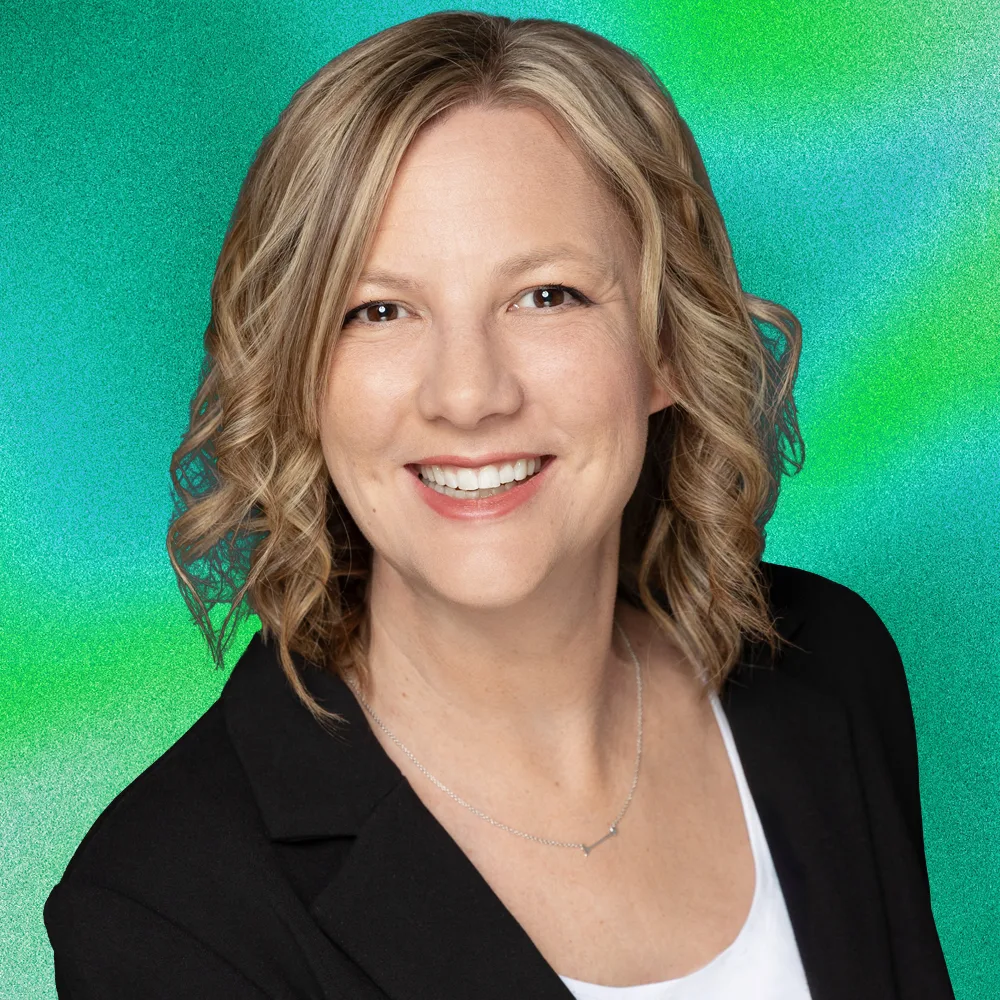How Ayrton Energy found its first investor

The Calgary-based startup addresses a key hurdle in hydrogen adoption. But to scale its solution, it needed capital. Connections to MaRS’s deep network helped CEO Natasha Kostenuk land a lead investor.
The challenge
Developing a fundraising strategy that would resonate with investors.
The impact
The startup fine-tuned its pitch and landed its first investor, which garnered follow-on funding. By August 2024, Ayrton Energy closed a U.S.$6.8-million seed round.
Natasha Kostenuk is laser-focused on addressing one of the biggest obstacles in the hydrogen sector. “Most people are working on the sexier parts of hydrogen: production and end use,” she explains. “But the real bottleneck to hydrogen adoption is storage and transportation,” she says.
Because hydrogen is such a light and low-density gas, it’s difficult and expensive to store and distribute. Kostenuk and co-founder Brandi Kinkead developed a liquid organic hydrogen carrier and process using electrolysis that makes it possible to store and transport it safely using trucks, pipelines and other existing liquid fuel infrastructure. Their solution lowers costs up to 50 percent compared to conventional H2 storage methods.
In 2021, they launched Ayrton Energy (aptly named after the late-19th-century trail-blazing engineer Hertha Ayrton) and began the hard work of building their business.
“I joke with our team that we’re putting the hard in hardware,” says Kostenuk. “You have a big vision of what you can develop and how you can do it. But it takes money and it takes time — which costs money.” A former colleague, Summit Nanotech founder, Amanda Hall, recommended she apply to the RBC MaRS Women in Cleantech Accelerator for targeted support.
Speeding up growth
Leah Perry, the climate capital lead at MaRS, knew Ayrton’s “plug-and-play approach of using existing infrastructure” would resonate with investors and speed up Kostenuk’s timeline. “When you raise funds more quickly, you can deploy and grow faster,” says Perry. “A lot of times speed is the factor in whether a startup can survive or not.”
So, as soon as Kostenuk was accepted into the cohort, they started working on finding the first investor.
Honing a fundraising strategy
“The first investor is the hardest one to get,” says Kostenuk. She worked closely with Perry to fine-tune her pitch deck and tell her story in a way that helped investors immediately “understand the why.”
Next, Perry and the climate team combed through MaRS’s network of investors. “We’re connected to about 400 climate-focused venture capitalists,” says Perry, who identified potential matches before reaching out to gauge interest. “We spend a lot of time building trust with investors, so they know that if I’m sending them something that it’s been vetted through our program.”
Natasha Kostenuk
Garnering follow-on funding
Ayrton secured its first investor, SOSV, shortly after that. “They ended up leading our pre-seed round and we raised almost a million dollars in March 2023,” says Kostenuk. Getting that lead for the pre-seed so quickly sparked interest from other investors; the company closed a U.S.$6.8-million seed round in August 2024.
What’s next:
This spring, Ayrton announced it’s developing a pilot project with ATCO Gas, a pivotal partnership demonstrating how using existing infrastructure networks to transport hydrogen can advance Canada’s hydrogen economy. And it’s begun working with Hawaiʻi Gas to explore the possibilities for decarbonization and hydrogen adoption in that market. Ayrton’s tech could also expand the possibilities of distributing fuel among remote and dispersed communities in the Hawaiian islands.
Kostenuk says the key to Ayrton’s success is to “stay focused on what’s practical” and keep solving the problems in the hydrogen ecosystem. As Ayrton continues to grow, Kostenuk says MaRS will remain an important source of support. “They have such a strong group of people that any time we come up with a challenge, we’ll reach out to them.”
Ayrton Energy
Founded: 2021
Program: Capital Program, RBC Women in Cleantech Accelerator
Services: Capital advisory, investor connections, technology and market development
Find out how MaRS supports technology ventures, investors and other organizations that are pushing the boundaries of clean technology and helping drive the world to net zero.